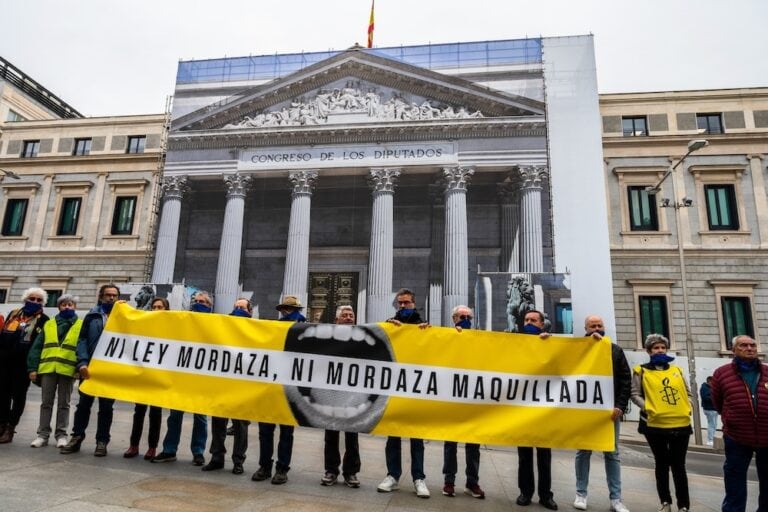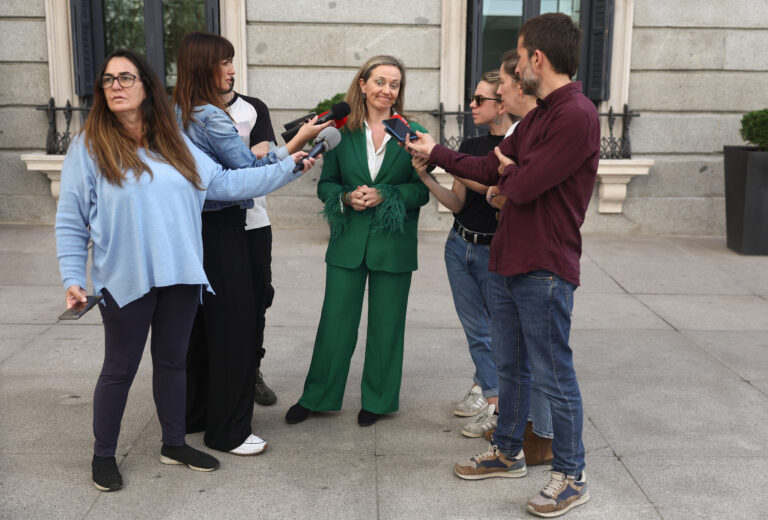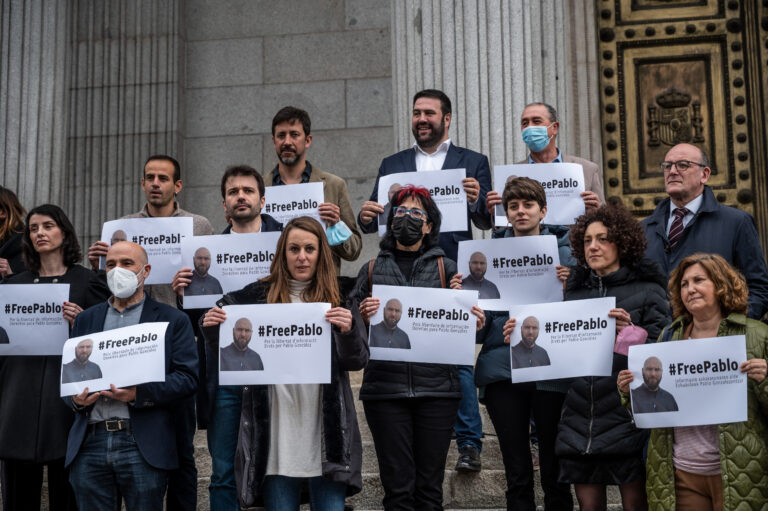(RSF/IFEX) – RSF has voiced its outrage over the 12 December 2002 attempted parcel bomb attack on the “El País” newsroom in Barcelona. The bomb was defused by police. The booby-trapped parcel contained 50 grams of explosives that would have detonated when opened. The newspaper’s security guards noticed the suspicious parcel while scanning incoming mail […]
(RSF/IFEX) – RSF has voiced its outrage over the 12 December 2002 attempted parcel bomb attack on the “El País” newsroom in Barcelona. The bomb was defused by police. The booby-trapped parcel contained 50 grams of explosives that would have detonated when opened. The newspaper’s security guards noticed the suspicious parcel while scanning incoming mail and called the police.
“The Spanish press is again the target of terrorists, following a long series of attacks in the Basque Country,” RSF Secretary-General Robert Ménard said. “Everything must be done to combat the spread of violence toward the news media in Spain,” Ménard said, pointing out that some 50 persons were in the “El País” office when the bomb was detected. Many of them could have been injured if it had exploded.
According to initial findings, the parcel bomb was mailed from Milan by an “anti-capitalist group”. The parcel contained a book and a letter in Italian signed by an anarchist group calling itself The Five Cs (Cell Against Capitalism, Prisons, Their Jailers and Their Prison Cells). The letter contained threats against certain “capitalist firms” and demanded the release of prisoners who have been held for more than 20 years. The group could be linked to one of the Italian anarchist groups campaigning for the release of prisoners held in special conditions of detention.
Anarchists Claudio Lavazza and Giovanni Barcia, the presumed leaders of The Five Cs group, are serving 50-year sentences in Huelva Prison (southern Spain) for the murder of two policemen in 1996. The Italian police believe that the bomb was sent to the Catalan offices of “El País” in order to ensure maximum media exposure. The police attribute several attacks to The Five Cs group, including a parcel bomb that exploded at the Italian television network RT4 on 18 July 2001, inflicting minor injuries on one person.
The attempted attack on “El País” bears certain similarities with a previous bomb attack against journalist Jesus Maria Zuloaga, at the headquarters of the Madrid daily “La Razon” on 25 April 2000 (see IFEX alerts of 14 May, 21 and 16 March 2001, 8 May and 26 April 2000). In that attack, a video cassette-sized parcel bomb was detected during a scan. Responsibility was claimed by a group calling itself The Anarchists, which said it wanted to demonstrate solidarity with prisoners and press for the release of prisoners who were ill. The group had also demanded the abolition of solitary confinement in prisons. In 2000, a total of seven parcel bombs were sent to newspapers or journalists in Spain.
RSF notes that journalists are a preferred target of terrorists in Spain. About 100 Spanish journalists currently receive government protection or the protection of private security companies, and the news media have been stepping up security measures, installing bullet-proof windows and scanning machines in particular.


